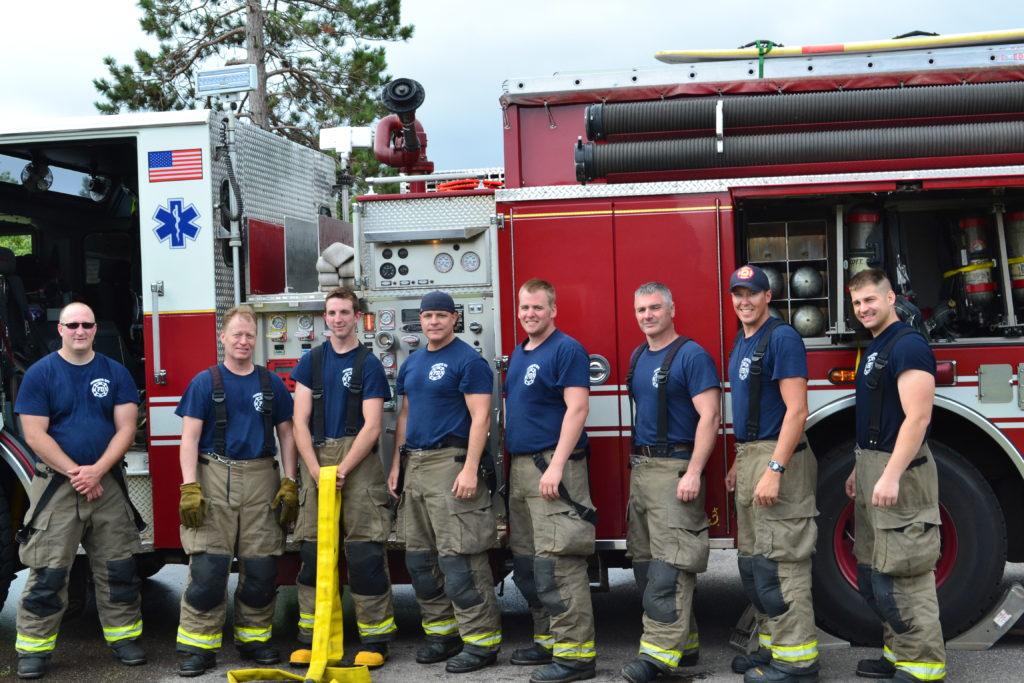Winter is a busy time for firefighters in Marquette. The number of incidents they respond to, from car accidents to fires, is higher than at other times of the year. Lieutenant Kurt Hillier is a fireman and paramedic with the Marquette Fire Department. He has over 20 years of experience, during which he’s learned some things most people probably don’t think about.
“Around here this is usually our higher time for fires,” Hillier said. “[People] tend to stay inside more, houses are closed up more, they use additional sources of heat… And then obviously, with our road conditions up here, we do get a lot more accidents in the winter.”
According to the United States Fire Administration, winter home fires only make up 8% of all fires nationwide, but they account for 30% of fire deaths. Most winter fires start as cooking accidents or when combustibles are placed too close to heat sources.
The National Fire Protection Association lists other winter hazards on its website, including carbon monoxide poisoning from improper use of fuels like gasoline, wood and coal.
Maintenance of space heaters, wood stoves and furnaces can go a long way to prevent fires, and common sense when driving is the best way to avoid car accidents. Hillier said most car accidents in the winter are fender-benders, but that doesn’t mean they can’t be jarring or costly. Airbags go off with the force of a shotgun blast and are capable of busting car windows.
Hillier said there are things people can do to help first responders. Fire engines only carry 750 gallons of water, which means they need access to fire hydrants, most of which are buried under piles of snow. The fire department does try to keep them clear, but it’s hard to keep up. Members of the public can save the fire department valuable resources by digging out fire hydrants near their homes. Another thing people can do is look out for their elderly neighbors or relatives.
“The majority of our calls are [emergency medical service] runs,” Hillier said, “and a lot of those EMS runs are falls. They do involve the elderly most of the time… if you do have elderly loved ones, make sure that their homes are clear of trip hazards, maybe go shovel their walkways; salt and sand them.”
Hillier stressed the importance of common sense repeatedly, especially during adverse weather conditions. First responders are limited by road conditions, just like everyone else. Planning ahead is necessary to avoid accidents or to mitigate their impacts. Hillier suggested keeping emergency supplies in a car, like blankets, flares and jumper cables, especially before long trips. He also emphasized leaving early and planning on longer commutes to avoid accidents from speeding.
On the homefront, Hillier said it’s important to have enough working smoke detectors, preferably one for every bedroom and one for every floor. Kitchen smoke detectors can be annoying if they’re frequently set off during cooking, so it’s especially important to have smoke detectors in other rooms if the kitchen one has been disabled.
There’s one final thing that people don’t really think about, Hillier said.
“You can sleep with your bedroom door shut. It makes an amazing difference if you do have a fire in your home.”
Hillier says he’s seen charred hallways, then opened doors to rooms that were nearly undamaged. If there is a fire in your house, one thing you can do to save your property and help the firefighters is close doors as you leave. The front door, too.
To learn more about winter safety, please visit the National Fire Protection Association at www.nfpa.org or the U.S. Fire Administration at www.usfa.fema.gov.




























